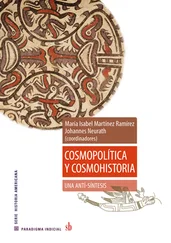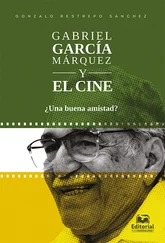Gabriel Josipovici - Touch
Здесь есть возможность читать онлайн «Gabriel Josipovici - Touch» весь текст электронной книги совершенно бесплатно (целиком полную версию без сокращений). В некоторых случаях можно слушать аудио, скачать через торрент в формате fb2 и присутствует краткое содержание. Год выпуска: 1996, ISBN: 1996, Издательство: Yale University Press, Жанр: Современная проза, на английском языке. Описание произведения, (предисловие) а так же отзывы посетителей доступны на портале библиотеки ЛибКат.
- Название:Touch
- Автор:
- Издательство:Yale University Press
- Жанр:
- Год:1996
- ISBN:0300066902
- Рейтинг книги:5 / 5. Голосов: 1
-
Избранное:Добавить в избранное
- Отзывы:
-
Ваша оценка:
- 100
- 1
- 2
- 3
- 4
- 5
Touch: краткое содержание, описание и аннотация
Предлагаем к чтению аннотацию, описание, краткое содержание или предисловие (зависит от того, что написал сам автор книги «Touch»). Если вы не нашли необходимую информацию о книге — напишите в комментариях, мы постараемся отыскать её.
Touch — читать онлайн бесплатно полную книгу (весь текст) целиком
Ниже представлен текст книги, разбитый по страницам. Система сохранения места последней прочитанной страницы, позволяет с удобством читать онлайн бесплатно книгу «Touch», без необходимости каждый раз заново искать на чём Вы остановились. Поставьте закладку, и сможете в любой момент перейти на страницу, на которой закончили чтение.
Интервал:
Закладка:
And in what manner Oedipus passed from this earth, no one can tell. Only Theseus knows. We know he was not destroyed by a thunderbolt from heaven nor tide-wave rising from the sea, for no such thing occurred. Maybe a guiding spirit from the gods took him, or the earth's foundations opened and received him with no pain. Certain it is that he was taken without a pang, without grief or agony — a passing more wonderful than that of any other man.
It has become commonplace in modern productions of these plays, to have the messenger mime the terrible events he is reporting, as though no director could bear to let an actor merely speak to the audience for more than a few seconds without the need for some kind of action on stage ‘to hold the audience's attention’. Sophocles blocks off this possibility straightaway, for what the messenger sees and reports is not some frightful or even wonderful event but something so simple that most dramatists would instantly dismiss the possibility of making it the central feature of the climactic scene of a play: a man holding his hand up before his eyes. Of course the messenger too feels the need to embroider, to try to enter the mystery, and he adds that Theseus held up his hand over his eyes ‘as if he had seen some terrible sight that no one could bear to look upon’. But this only reinforces the audience's sense that at some point, and rather sooner than later, interpretation has to stop. All we have, after all, is a man standing before us and telling us about another man standing some way away from him, shielding his eyes with his hand, as though to protect himself from something ‘not endurable to see [ oud anaschetou blepein ]’.
And yet that event, triply removed from us as it is, is far more moving than any death on stage could ever be. For such a death is always riddled with falsity. That is why when we are presented with a death on stage we tend, while watching, to think about the quality of the acting or the subtlety of the lighting, about anything in fact but what is purportedly taking place before our eyes. This is not because it is too painful but because something in us revolts at the falsity of what we are being asked to witness. Falsity partly because death is so clearly not taking place, since death is unique and irreversible and we know that this one will take place again and again in the same way at the same time on the following night; but also because, even if it were actually taking place, we, who can only sit in our seats and watch, recognise that we could not be adequate to it, that we are not really there .
A massacre is an event; death is not. That is why we are not embarrassed — though we will be horrified — at watching news-reel of a massacre, but feel deeply uneasy about watching the last moments of an individual being filmed. Suicide, on the other hand, is an event, and therefore inherently dramatic, as Shakespeare sensed when he wrote Othello's great last speech. Death, ordinary death, however, cannot be dramatised, only told, as the Bible tells it: ‘Then Jacob died, being old and full of years, and he was buried …’.
The way Oedipus at Colonus lets go of its protagonist, on the other hand, moves us with a liberating force. We, who have seen the blind Oedipus groping his way about the stage before us, and who, because of his blindness, have found ourselves inhabiting his body as we never do that of Agamemnon or Oedipus himself when still king, now find ourselves parting from him, and so from ourselves, in a way that is both natural and ungraspable. But the point is that we are not being asked to grasp it. Sophocles has found a way of allowing us to give our assent to that which must be because he has protected Oedipus at the end not only from the rapacity of our gaze but also from the workings of our imaginations. The terrible necessity of loss is made bearable, but neither tamed nor falsified, because Sophocles has succeeded in writing a play in which, to adapt a famous remark about Waiting for Godot , we are made to recognise how, for each of us, as for Oedipus, everything happens just once.
9 Praesentia
On my first visit to Los Angeles I surprised my hosts — and myself — by asking to be taken down to the sea. I found that, more even than wanting to visit the streets down which Philip Marlowe had walked, or any of the city's great museums, which my hosts were anxious to show me, I wanted to dip my hand in the Pacific. We drove out of town and along the coast in the direction of the Getty Museum. They stopped the car and I got out and went across the dirty beach and bent down where the waves lapped the shore.
The water was warmer than it ever is in the Channel, though perhaps a little colder than it is in the Mediterranean. It tasted, of course, as I found when I put my hand up to my mouth, of salt. I dabbed my forehead and cheeks, took one last look and trudged back to the waiting car.
Why this need to touch? Why had I not been content simply to see the Pacific? (Why indeed should I have wanted even to see it, since I knew very well what it must look like, no different from any other stretch of sea at the edge of a big city?)
I don't know. I only know that, having got to Los Angeles, I had to do more than merely visit the city, more than merely see the ocean. Dipping my hand in it confirmed in some way that I had been there. Less permanent than a photo (for how long does a sensation last?), the act of dipping my hand in the Pacific nevertheless did what no photo could ever do. It confirmed that I had indeed been there, been there ‘in person’. Within a very short while, of course, I could recall nothing of that moment, only my sense of myself hurrying across the sand and the feeling of disappointment that the water did not seem in any sense distinctive.
So, it is not that my hand retains the feel now that my conscious memory has blotted out the event. This was no Proustian experience, to be re-activated later, when I would dip my hand into some other sea. And how could it be, for I was there only for a moment and all my actions were much too conscious and willed for them to be capable of any Proustian resurrection? No. All I am sure about is that this was something I felt driven to do and that now I know, in some obscure way, that I have been on the other side of the world and made contact with one of the world's great oceans. I would not, of course, have made any special effort to go all the way there only to dip my hand into the Pacific; as I was there, though, it felt right, even important, that I should do so. Why it should be important is a mystery to me, but there it is.
A friend who recently visited Rome for the first time since adolescence told me he had never been in a city where he had felt so great a desire simply to touch. When I asked him why he simply said: ‘I suppose it's because there's such a sense of antiquity about it. Everything there seems to stretch back so far.’ But why, I asked him, had he not been content merely to see, why had he felt the need to touch ? ‘I really don't know’, he said, and then: ‘I suppose touching something confirms its presence.’
Its presence to you, but also your presence to it. The doubleness is crucial.
St John, in his Gospel, tells how, when the resurrected Jesus returned to his disciples,
Thomas, one of the Twelve, called Didymus, was not with them. … The other disciples therefore said unto him, We have seen the Lord. But he said unto them, Except I shall see in his hands the print of the nails and put my finger into the print of the nails, and thrust my hand into his side, I will not believe. And after eight days again his disciples were within, and Thomas with them: then came Jesus, the doors being shut, and stood in their midst, and said, Peace be unto you. Then saith he to Thomas, Reach hither thy finger, and behold my hands; and reach hither thy hand, and thrust it into my side: and be not faithless, but believing. And Thomas answered, and said unto him, My Lord and my God. Jesus saith unto him, Thomas, because thou hast seen me, thou hast believed; blessed are they that have not seen, and yet have believed. (John 20:24–9)
Читать дальшеИнтервал:
Закладка:
Похожие книги на «Touch»
Представляем Вашему вниманию похожие книги на «Touch» списком для выбора. Мы отобрали схожую по названию и смыслу литературу в надежде предоставить читателям больше вариантов отыскать новые, интересные, ещё непрочитанные произведения.
Обсуждение, отзывы о книге «Touch» и просто собственные мнения читателей. Оставьте ваши комментарии, напишите, что Вы думаете о произведении, его смысле или главных героях. Укажите что конкретно понравилось, а что нет, и почему Вы так считаете.












